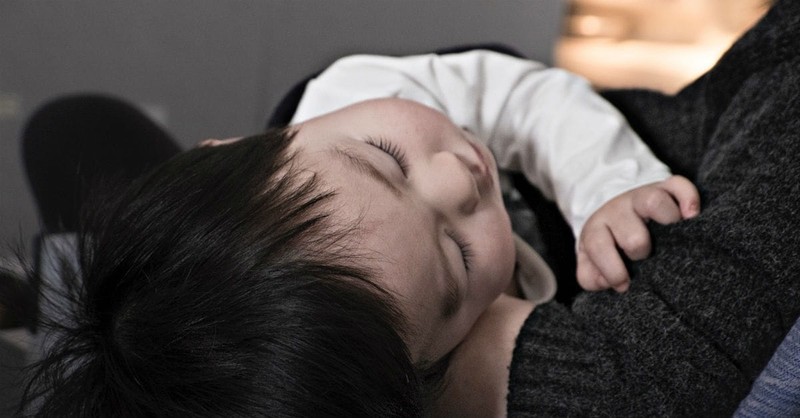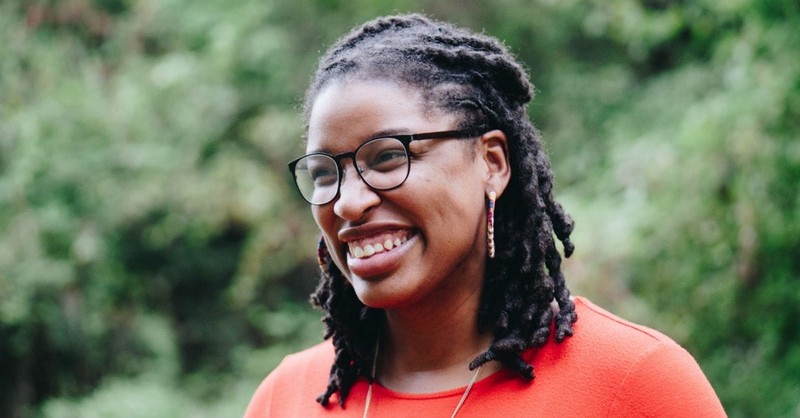
Mommy Wars has been hotly debated for over three decades now, and the battles waged cover everything from where you have your baby to whether you breastfeed, co-sleep, sleep-train, vaccinate, stay at home, go back to work, the foods you eat, the movies you watch and more. There’s no denying that these fights are divisive and exhausting, and they’re certainly not biblical.
Mommy Wars are not just monocultural either. In fact, the factions and divisions across ethnic lines can be even worse as women fail to understand their sister's incorporation of culture, traditions and familial background into her approach as a mother. The consequence is that many of us experience tunnel vision regarding the experiences and plights of all mothers.
But if we, as Christian women, want to truly move past these wars, we need to hold fast to biblical truth, certainly, but I think we also need to broaden our cultural horizons. I want to readdress the Mommy Wars through ethnic-colored glasses by highlighting the three most divisive issues within this fight: work, food, and discipline. I will share perspectives of ethnic minority women, specifically Latinas and African American women in low-income communities, in order to breathe complexity and nuance into our discussions of motherhood. My hope is that not only are we moved to compassion, but that we can even learn from other women’s experiences and think of how we can serve each other more instead of competing against one another.
Now, to be clear, not all ethnic minorities are poor. In fact, for example, while most people don’t realize this, 40% of African Americans are part of the middle class and above. Nevertheless, I want to focus on women from low-income communities as it is my hope that these “other” experiences will begin to shift, open up and even transform our often-conflated moral-social stances on these issues.
Photo Credit: Pexels

How Ethnic Minority Women View Work
Let me start by saying that being a stay-at-home mom is a luxury. If you are even taking part in the debate of work v. home, you and your family are most likely living above the poverty line. For most poor women, and this includes a fair number of ethnic minority women, work is their only option.
I rub shoulders with a number of these women in my day-to-day life in east Austin, and I can tell you this: these women are either married, but just poor; or, most likely, they are single mommas, raising more than one child on their own with no outside help. I know a Latina named “Cal”, whose husband left her, but who also has three kids! She doesn’t have any family in the area, so her only choice is to work and not just that, but she must work long, extended hours. She’s not always home to help with her kids’ homework or to put them to bed. The oldest child is responsible for those needs. But by working, her kids have food to eat and at least one pair of good shoes to wear for school. Now a woman like that is in no way the target audience of this article that pleads for women to just be comfortable with living on less and to stay at home so that her children receive the appropriate levels of nurture.
Photo Credit: Unsplash/Laura Lee Moreau

"...With our words we can either honor them with the God-given dignity that they deserve, or we can tear apart their self-worth."
In fact, I have to tell you that when poor, ethnic minority women like “Cal” hear comments from suburban, middle-class Christian women, say “you should consider the price of leaving your baby in someone else’s care” and other forms of mommy guilt, they are utterly discouraged. This is judgmentalism at its finest, and it is judgmentalism that is fueled by cultural ignorance.
If we are going to get past the Mommy Wars as Christian women, we need to realize that the fight regarding work v. staying at home is a privilege in the first place. Many women do not have this luxury. They are alone, exhausted, and scared. What they really need is love, understanding, and help. Instead of guilt-tripping these working women, what if we as Christian woman made friends with them instead and let them know they’re not alone? How we talk about working women matters, and with our words we can either honor them with the God-given dignity that they deserve, or we can tear apart their self-worth. We are called to do the former.
Photo Credit: Unsplash/Craven Bing Jr.

How Ethnic Minority Women View Food
Second, you won’t see many poor, ethnic minority women putting themselves or their children on special food diets. There is so much to say on this subject, but really what this issue boils down to, once again, is money.
Rich women can more easily afford to eat organic food, gluten-free food, paleo, or fill in the blank. Poor women can’t. Coconut flour is expensive! You just can’t buy that kind of food when you have a minimum wage job and four mouths to feed.
Stay-at-home moms have the luxury of breastfeeding. Poor women do not, mostly because they work, but also because some cultures have stigmas against breastfeeding and thus never encourage their girls to do it.
Photo Credit: Unsplash/Joanna Kosinska

"Let’s help these mothers keep their kids from going hungry instead of passing judgment."
Wealthy, suburban women have a variety of doctors, medical facilities and treatments covered by standard insurance, and their kids have the best opportunities to fight food allergies. Most poor, ethnic women and their kids don’t even have insurance.
Certainly, there is much we can say about food education and empowering all women to know how to make healthy food choices. But what if this was also tapered with heavy doses of humility and compassion? These poor, ethnic minority women are not oblivious to the health debates around them, and many of them have shared with me their despair over not being able to give their kids the same foods as wealthier women, from breastmilk to non-white bread. My immediate response in these situations is always, “Fed is best.” Let’s help these mothers keep their kids from going hungry instead of passing judgment.
Photo Credit: Unsplash/Dane Deaner

"What if food education was balanced with actual invitations for these women and children to join your family for a meal...?"
But we can even go further. What if, for example, Christian women helped poor, ethnic minority women with their groceries? What if food education was balanced with actual invitations for these women and children to join your family for a meal at your home (and you pick them up too)? Instead of fighting over who is eating the healthiest food, we can turn this conversation into making sure everyone actually has food.
Photo Credit: Unsplash/Jasmin Schreiber

How Ethnic Minority Women View Discipline
Finally, ethnic women in general approach discipline very differently from Anglo women. There is a common phrase among Latina, African American, and Asian women among others when it comes to parenting, and it is this: “It takes a village.” By that, they mean that not only should their child be disciplined, but they trust in and value the authority of their family to also take an active role in their child’s upbringing.
When my husband and I first planted Church of the Violet Crown in East Austin four years ago, I oversaw the Children’s Ministry, which allowed me to have a lot of personal encounters with both the kids and their parents in our church. It was not unusual for a mother to drop off her kid and let me know that I had full permission to discipline her child if he or she got out of line. I have related this scenario to more than one Anglo, Christian woman and each time she is horrified, gaping at my statements in incredulity. This story is but a glimpse into ethnic minority cultures, which place a high premium on the authority of elders and the orderliness of the family unit.
Photo Credit: Unsplash/Farrel Nobel

"Perhaps we can even learn from each other..."
These sorts of ideas never seem to come up within more individualistic and mainstream opinions on the subject. But I do wonder how this conversation might shift if we learned to appreciate the diversity of approaches when it comes to child discipline? Perhaps we can even learn from each other by removing our biases and utilizing more multicultural approaches to correcting and training our own children? For example, you may find yourself feeling amazed that some Indian children can be told to sit quietly for an hour while reading a book or journaling without getting up once, and if you asked an Indian mother for tips, she would be all-too-happy to share.
Photo Credit: Thinkstock

Moving Beyond the Mommy Wars Through Ethnic-Colored Glasses
There are, of course, many problems inherent within Mommy Wars, and this includes a lack of appreciation of and care for the diversity of mothers that God has created.
Truly, God loves diversity. As Pastor and Speaker John Piper has argued,“God’s focus on the diversity of the peoples advance his purpose to be glorified in his creation.” I would add to this that a part of God’s kingdom-building diversity is reflected in motherhood. It’s high time that we embrace the globally diverse cast of mothers around us, learn from each other, delight in and marvel at the different ways God has created mothers, care for each other, and seek out each other’s good. In doing so, I think we will come closer to God’s desire for all peoples, mothers included, to join hands and praise Him as the Psalmist does in Psalm 96:3-4 when he states, “Declare his glory among the nations, his marvelous works among all the peoples!”
Michelle Reyes, PhD. is pastor’s wife, literary scholar, and momma of two littles. She is a regular contributor for Think Christian, (in)courage and Austin Moms Blog, where she writes on faith, family, and diversity. Michelle helped plant Church of the Violet Crown in Austin, Texas in 2014—an urban, multicultural church where her husband, Aaron Reyes serves as lead pastor.
Photo Credit: Unsplash/Eye for Ebony
Originally published Wednesday, 18 July 2018.








